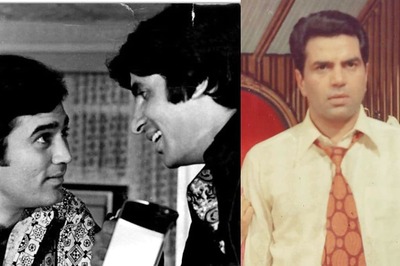
views
Japan’s Prime Minister Shinzo Abe announced Friday he will resign, ending his record-breaking tenure in a bombshell development that kicks off a leadership race in the world’s third-largest economy.
Abe said he is suffering a recurrence of the ulcerative colitis that forced him to cut short a first term in office, and that he no longer felt able to continue as prime minister.
“Now that I am not able to fulfil the mandate from the people with confidence, I have decided that I should no longer occupy the position of the prime minister,” he said.
While speculation about Abe’s political future has grown in recent weeks, after two hospital visits for unspecified health checks, the resignation nonetheless came as a surprise.
Even as recently as Friday morning, the government spokesman had appeared to dismiss concerns about Abe’s health and suggested he would stay on.
But Abe made clear that would not be possible, apologising for once again cutting short his tenure.
“I would like to sincerely apologise to the people of Japan for leaving my post with one year left in my term of office, and amid the coronavirus woes,” he said, bowing deeply.
Abe said he would “firmly execute my duty to the end”, and until the next prime minister is appointed, possibly through a leadership election involving ruling party lawmakers and members.
Abe had been expected to stay in office until the end of his term as LDP leader in September 2021, and the jockeying for position to succeed him was still in its early stages.
Still, some potential successors have already emerged, among them Finance Minister Taro Aso, chief cabinet secretary Yoshihide Suga, former defence minister Shigeru Ishiba and LDP policy chief Fumio Kishida.
Kishida is rumoured to be Abe’s personal choice, while Aso commands one of the strongest blocs within the ruling party.
Most of the potential successors are seen as unlikely to break significantly with Abe’s policies.
Tributes poured in from leaders around the world, with Indian Prime Minister Narendra Modi praising Abe’s “wise leadership” for strengthening ties and wishing him a speedy recovery, while the Kremlin hailed Abe’s “invaluable contribution” to relations.
Britain’s Prime Minister Boris Johnson tweeted he had “achieved great things”.
A spokesman for the presidential Blue House in Seoul praised Abe for his “many meaningful achievements”.
China was more circumspect, with a foreign ministry spokesman saying the resignation was an “internal affair” on which it would not comment.




















Comments
0 comment